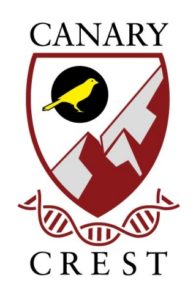
Cancer Early Detection Seminar
“Best Practices in Hip Imaging”
Michael Shen, PhD
Professor of Medicine, Genetics and Development, Urology and Systems Biology
Columbia University Medical Center
ABSTRACT
TBD
_____________________________________________
Hosted by
Sanjiv Sam Gambhir, MD, PhD<https://med.stanford.edu/profiles/sanjiv-gambhir>
Sponsored by
The Canary Center and the Stanford Cancer Institute
Stanford University
If you would like to be included on the email distribution list for weekly reminders, contact Ashley Williams (ashleylw.at.stanford.edu)
RSVP and more info at: https://www.onlineregistrationcenter.com/register/222/page1.asp?m=298&c=41

Integrative Biomedical Imaging Informatics at Stanford (IBIIS) and Center for Artificial Intelligence in Medicine & Imaging (AIMI) Seminar: “AI-Aided Diagnostic and Prognostic Tools for Prostate Cancer”
Okyaz Eminaga, MD, PhD
Postdoctoral Research Fellow, Urology
Biomedical Data Sciences
Stanford University
James H. Clark Center, S360
12:00pm-1:00pm – Seminar and Discussion (light refreshments provided)
Join via Zoom: https://stanford.zoom.us/j/613898274
ABSTRACT: Prostate Cancer exhibits different clinical behavior, ranging from indolent to lethal disease. A critical clinical need is identifying characteristics that distinguish indolent from advanced disease to direct treatment to the latter. The recent renaissance of artificial intelligence (AI) research uncovered the potential of AI to improve clinical decision making. In this seminar, we will go through the potential of AI to enhance the diagnosis and the prognosis of prostate cancer using magnetic resonance images, clinical data, and histology images. We will stress the challenges and benefits of having such AI-based solutions in clinical routine.
ABOUT: Dr. Eminaga passed his medical examination (Staatsexamen) 2009 and received his Ph.D. in Medicine 2010 from University of Muenster (major topic: medical informatics) under the supervision of Professor Dr. Axel Semjonow (one of the pioneer physician-scientists and biomarker researcher who worked on the standardization of PSA measurement for prostate cancer which is used nowadays) and Professor Dr. Martin Dugas (who is the head of European Research Center for Information Systems and one of the most influential professors in medical informatics in Europe). For those who don’t know the institute of medical informatics in Muenster. The systematized Nomenclature of Human and Veterinary Medicine (SNOMED), which is now used worldwide in medical information systems, was initiated by this institute more than 30 years ago.
His doctoral dissertation presented a novel documentation architecture for clinical data and imaging called cMDX (clinical map document) that facilitates the concept of the single-source information system for clinical data storage and analysis, and is successfully used in clinical routine for generating the pathology reports with graphical information about the spatial tumor extent for prostatectomy specimens since 2009 at the prostate center of University Hospital Muenster. This work has been also utilized for more than 20 studies related to genomics, translational medicine, epidemiology, urology, radiology, and pathology. Dr. Eminaga also established the biobanking information management system to manage the samples of one of the largest biobanks for prostate cancer in Europe. This biobank is also part of the European P-Mark network for prostate cancer-related biorepositories initiated by Oxford University.
Dr. Eminaga completed his residency in Urology in the University Hospital of Cologne (Germany) with a major focus on uro-oncology. He was also a research fellow in Prostate Center of University Hospital Muenster, doing research in biomarkers, biobanking infrastructure, epidemiology and histopathology. During his residency fellowship, he further evaluated the role of certain miRNA in prostate cancer development under the supervision of the molecular biologist Dr. Warnecke-Eberz. After his residency, he started a research scholarship at the laboratory of Dr. Brooks, doing genomic research and bioinformatics for research topics related to prostate cancer evolution. Now, his current interests have expanded to statistical learning, medical imaging informatics, and integrative data analysis.
He is the recipient of 3 highly-competitive scholarships and his works have been recognized at national and international levels e.g., by the European Association of Urology. Currently, he is an early-investigator research awardee for prostate cancer managed by the department of defense and works on developing decision-aided tools for diagnosis and prognosis of prostate cancer.
Follow us on Twitter: @StanfordIBIIS and @StanfordAIMI
http://ibiis.stanford.edu/events/seminars/2019seminars.html

“Messaging in the Age of Microtargeting”
John Stafford
Assistant Vice President
Digital Strategy
Stanford University
Bjorn Carey
Senior Director
Digital Strategy
Stanford University
Join via Zoom: https://stanford.zoom.us/j/400566542
Abstract:
Communications has become increasingly data-driven, targeted, and personalized. This has changed how Stanford analyzes communications opportunities from a research perspective and how it engages with relevant audiences. In this presentation, John and Bjorn will share the data and communications strategy underlying three communications initiatives and the resulting execution. They will also provide practical advice for individual thought leadership and communications in this dynamic environment.
About:
John Stafford, MA ’06, is currently Assistant Vice President for Digital Strategy at Stanford, the most senior digital communications role in the university. John is responsible for all aspects of creating a world-class digital communications function: setting the group’s strategy, building analytics and insight programs, counseling on crisis communications, leading multi-channel messaging initiatives, and advising colleagues across the University. He received a Master’s Degree in Communication from Stanford, a B.A. in History from the University of San Francisco, and was a founding advisor to Stanford Medicine X.
Refreshments will be provided.
